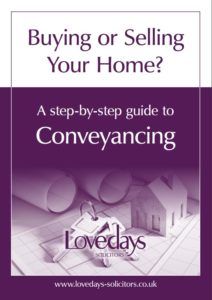- Home
- Personal Services
- Advice for Employees
- Conveyancing
- Dispute Resolution
- Boundary Disputes
- Dealing with Rent Arrears
- Japanese Knotweed Claims
- Landlord and Tenant Disputes
- Landlord Harassment & Illegal Eviction
- Negligence Claims Against Builders & Developers
- New Build Property Disputes
- Noisy Neighbour Disputes
- Personal Debt Collection
- Property Misrepresentations Claims
- Rights of Way Disputes
- Section 21 No Fault Evictions
- TOLOTA Claims
- Tree & Hedge Neighbour Disputes
- Divorce and Separation
- Family Law
- Lasting Power of Attorney
- Licensing
- Probate Law
- Trusts
- Wills
- Business Services
- Reviews
- Make An Enquiry
- Cost and Service Information
- About Us
- Contact Us
Profits à Prendre
Whilst most of the time we are told that we cannot take things that belong to other people, a profit à prendre does give a person the right to take things from someone else’s land. Of course, it is not as simple as helping yourself to anything you fancy, as there are strict rules surrounding how this should be done and what is covered within it. As it applies to tangible elements such as peat or timber, it can be a very useful thing in the world of agriculture, if the rule is used correctly.
It is important to understand the legal complexities of profits à prendre, and Lovedays Solicitors can help you to do this. Our extensive knowledge of agricultural law means that we can advise and guide you, as well as drafting agreements and registering a profit à prendre in gross, ensuring that everything is correct, legal and valid.
{quote}
What are Profits à Prendre?
A profit à prendre allows you to take part of the land itself, such as peat, something growing on it, like grass, or wildlife that is killed on it, for example, through shooting or fishing. Whatever it is that is taken must be capable of ownership, so a profit cannot be a right to use land or take water from a natural feature.
A profits à prendre appurtenant is a right of the benefit attached to a particular piece of land and it cannot be registered with its own title. However, a profit à prendre in gross is not attached to the ownership of any particular land. The owner of the profit may not be the owner of any land and may dispose of the profit independently from any land they do own. It can be registered with its own title or may be the subject of notice in the register of the affected land without being registered with its own title.
The right has existed in England for centuries. There were a number of developments around the time of the 13th century including the introduction of the feudal system which made land a source of power and the manorial system which secured the local lord as the district ruler and village as the centre of agricultural production.
In addition to this, there was an appropriation of common land, customary land and wastes to the lord of the manor which the villagers were given access to for their needs. These rights became known as ‘rights of common’, which then became recognised and settled in law. These rights were various kinds of profit, and they have continued to run alongside the growth of capitalism.
Legal Implications for Farmers
Profits à prendre can be created by agreement between the landowner and the recipient or by prescription, where the right is acquired through long usage. If the right is claimed through prescription, the Land Registry will need to see evidence that establishes that there was a period of at least 20 years’ use, that the right was exercised without force, secrecy or permission, or that the right claimed is not a customary right. The rights can be given for a certain duration or for all time.
It is important that landowners are aware of the profits à prendre rules to ensure that any rights and rules are followed correctly. These rights need to be properly documented and the Land Registry requirements need to be fully complied with.
It is possible to sell the use of profits à prendre for financial gain, but it will depend on the type of profits à prendre that you have in place.
Landowners must also take care to be aware of what is happening on their land at all times. A profit à prendre can be created by prescription if a period of sustained use has been allowed to continue, and so you can find that this occurs against your will if things are left unchecked.
profits à prendre can be used in a number of different ways. For example, it can allow people to use the land for grazing, as the livestock are the ones taking the grass, or to quarry stone, sand or gravel. It also includes the rights to plant and harvest crops or to take timber. It can also permit fishing or the shooting of game.Navigating Profits à Prendre Agreements
When putting a profit à prendre in place, it is important to put a formal agreement together. This ensures that everyone knows what the rights permit and can ensure that they are permitted and not abused.
When putting a profits à prendre agreement in place, it is important to make sure that landowners are clear on what is happening on their land and that it is managed in line with any regulations. It is also important to agree on a time period for the agreement with a clear end date being listed. Alternatively, it should be noted that there is no cut off point and that the rights are ongoing. The landowner can be specific in what they allow the recipient to benefit from. For example, they may allow a timber company to harvest timber but not oil or crops, whilst a cattle breeder may be allowed to let their livestock graze, but they will not be able to fish while they are there.
If the landowner chooses to sell the land at any point, the profits à prendre agreement will become part of this. Having the details fully documented will allow potential buyers to have a clear picture of how the land is being used and what has been agreed and what their obligations are.
The agreement must also take into consideration what it entitles the recipient to have. This can apply to their rights of way, what they can take, and any areas of the land that they do not have access to. Like other property rights, profits à prendre can be bought, sold or transferred once they have been created, but they will be subject to the original terms and cannot be expanded beyond this.
Lovedays Solicitors are committed to supporting farmers and can use their expert knowledge to draw up fair and legal agreements that work for everyone.
{quote}
Recent Changes and Legal Precedents
It is important to be aware of any profits à prendre that might apply to your land, as they can be exercised at any time. Just because it has not been used for 40 years, it does not mean that a recipient cannot suddenly come onto your land and start fishing if the profits à prendre are in place for them to be able to do that.
It is generally acknowledged that theprofits à prendre system is an outdated area of law, and because of its age, there are a lot of complexities involved in it. This means that there is scope for reform in this area, but currently only minor changes have occurred.
The Land and Conveyancing Law Reform Act 2021 brought in the biggest changes by repealing previous changes surrounding prescriptive rights. To establish a right, the user must now be able to demonstrate 20 years of continuous use of it. Periods of continuous use for state owned property is now 30 years and it becomes 60 years if the land is foreshore.
In order to be sure how the law applies in your own case, it is best to seek professional legal advice. As changes have been put in place and rolled back over time, it can be difficult for all parties to know exactly where they stand and what their entitlements are. A specialist agriculture lawyer, such as those found at Lovedays Solicitors in Derbyshire, will be able to help navigate the case and find what rights apply.
Lovedays Solicitors: Your Partner in Profits à Prendre
The laws governing the profits à prendre are both ancient and complex, and so they can be extremely difficult to navigate, which is why it is incredibly important to seek professional help. At Lovedays Solicitors, we have extensive experience when it comes to agricultural law, and we have an in-depth understanding of the laws behind profits à prendre.
We can therefore advise on the matter and help in the case of granting profits à prendre by helping to draft professional and detailed agreements that cover all aspects of the rights. We can also compile and submit the necessary paperwork to HM Land Registry to ensure that everything is compliant and fully recorded in case of any future disputes.
Our helpful and friendly team can guide you through the process, helping to make sure that everything is in order and fully understood. We are always on hand to support farmers and work through this complicated aspect of agricultural law.
Conclusion
profits à prendre can be a very useful tool when it comes to allowing landowners and resource developers to share in the benefits of the natural resources on the land without needing to own the land itself. This can help to support a number of farms and individuals in the area legally and amicably if there are proper agreements in place outlining the rights and responsibilities of all parties concerned.
As the historical roots suggest, profits à prendre can be a powerful tool to bring farming communities together and support them if they are used in the right way. It is therefore important to get specialist legal advice in order to ensure that agreements are drawn up correctly and cover all of the necessary components. Lovedays Solicitors are experts in this area and can ensure that all laws and regulations are adhered to.
{quote}
Frequently Asked Questions
No. profits à prendre only apply to natural resources that are capable of ownership. Water can only be removed from land if it is in a container such as a tanker.
There are a few differences. An easement gives permission for land to be used in a particular way, such as for access, whereas a profits à prendre gives the right to actually remove something from the land.
If a profits à prendre is expressly created over land registered on or after 13th October 2003 then it is registrable.
Get Support Today
GPT Profits à prendre grant individuals the right to extract resources like peat or timber from someone else's land, under strict legal conditions. This ancient right is especially pertinent in agriculture, where it can significantly benefit land management and resource utilisation.
Lovedays Solicitors are experts in navigating the complexities of profits à prendre, offering detailed guidance, drafting agreements, and ensuring legal compliance. Whether you're establishing or contesting such rights, our team provides robust legal support to manage these rights effectively, safeguarding both landowners' and users' interests.

Free Guide
If you don’t know your leasehold from your freehold, then get our Free Conveyancing Guide. It contains details about the steps you will need to take with any property transactions. The Guide giving you detailed guidance on what your lawyer will be doing for you and what to look out for.


Lovedays Solicitors, Brooke-Taylors Solicitors, Potter and Co Solicitors and Andrew Macbeth Cash and Co Solicitors are the trading names of Derbyshire Legal Services Limited which is a company registered in England and Wales under company number 08838592. Registered office Sherwood House, 1 Snitterton Road, Matlock, Derbyshire, DE4 3LZ.
Authorised and Regulated by the Solicitors Regulation Authority under SRA ID number 637916.
-
01629 56660
-
This email address is being protected from spambots. You need JavaScript enabled to view it. -
Sherwood House
1 Snitterton Road
Matlock
Derbyshire
DE4 3LZ
© Copyright 2019 Derbyshire Legal Services Limited | Website by WebWorks